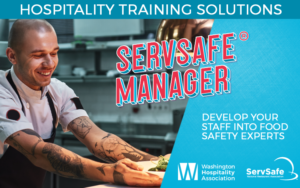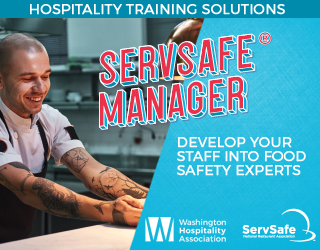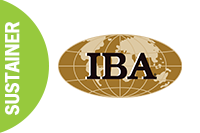(This article originally appeared on foodnewsfeed.com by Laura Zolman Kirk)
After the shock and gut-wrenching details of #MeToo story after #MeToo story, the restaurant industry is left asking what it means to have a positive, supportive work environment. How can restaurants and brands move forward, post-#MeToo, to create a better environment in its wake?
“I think it’s simple: Listen and be proactive. [This] is no time to be passive,” says Natasha David, co-owner of Nitecap bar in New York City. This simple piece of advice rings true throughout the industry. Women leaders and HR professionals alike agree that it’s about setting a good example as a leader, making expectations clear, listening to and making resources available to staff, and acting when needed.
[expander_maker id=”1″ more=”Read more” less=”Read less”]
Restaurants that choose not to heed the call put themselves at risk of alienating staff and ultimately losing good talent, especially when competitors are following the movement in more honest and effective ways.
“[What] keeps restaurateurs up at night, from our most-recent research, is attrition, keeping employees,” says Sara Anderson, workforce development director at the National Restaurant Association. “The workforce landscape is getting more and more competitive. When you have a great, positive environment, people have a tendency to be very attracted to that and want to stay longer.”
Lead and protect
“There won’t be a positive, supportive work culture if it doesn’t start at the top,” says Janet Hendrick, employment litigator and partner at Fisher and Phillips LLP. Whether you are the head of a small mom-and-pop operation or a large conglomerate, it is up to you to make clear what is acceptable and what is unacceptable in the workplace and model that behavior, Hendrick says.
David is a good example of this. “A big motivation factor for becoming the boss for me was the hope of creating a work environment in which everyone felt safe, as sexual harassment is a daily reality in our industry,” David says. “One incredible asset that we have as a [hospitality] community is flexibility. To me, a positive and supportive work environment embraces that flexibility. That can be as simple as stepping in to cover someone’s shift when they are in need or as extreme as being able to ask a guest to leave because they are acting inappropriately.” As a leader, David isn’t afraid to act on either, and her staff has responded in kind: “They are fiercely protective of each other, which I admire,” she says.
HR is a non-negotiable
With such thin margins, it’s hard to make room in the budget for a human resources professional, but sources agree this position is necessary in maintaining a healthy work environment for all employees.
“It’s non-negotiable,” Hendrick says. “Even if you have a smaller restaurant, it needs to be made clear to employees that they can go to someone in the organization and raise a complaint that will be heard, investigated, and addressed appropriately.” That person doesn’t necessarily need to have the HR title, she says, but it should be someone other than the employee’s direct supervisor.
Tracy Borkum has been in the business for 23 years and only two-and-a-half years ago started an HR department for her staff of about 500 at Urban Kitchen Group in Southern California.
“I think that is really important, once you get to a certain size, you have to be able to provide a platform where people feel safe and have someone to talk to,” she says.
Before, Borkum says, she supported her team by committing to developing relationships with employees and always making herself available to them. “But I just think now that’s not enough,” she says. “Now we have a full-time HR person on top of our directors, our directors of operations, and our executive chefs—all of those people create avenues [of communication]. You have to have those other layers.”
Other lines of defense
Hendrick agrees that layers of open communication, beyond a single HR professional, should be built into a company’s structure. “You should have several avenues, at least two—and if you are a larger organization, maybe three or four,” she says. Avenues include anonymous hotlines, ethics websites, direct supervisors, an HR professional, and even someone above HR, Hendrick says, so employees always feel they have somewhere they can go. “Less significant actions, even if they don’t rise to the level of legal sexual harassment, can cause problems if left unaddressed,” Hendrick says.
Check in and be involved
“The most important thing is to be in touch and connected [with employees],” Borkum says. This can be achieved through weekly meetings or scheduling regular office hours a week, “where, if someone wants to come in and sit and chat with you, they don’t feel that is inappropriate, because it has been made clear that that is available to them,” she says. “We’re always having conversations about how people are feeling in the work environment.”
David says the same: “Be involved in your bar or restaurant, make sure [your] staff feels comfortable talking to you. No one is saying be best friends with everyone, but building a relationship based on compassion is key.”
Firebirds Wood Fired Grill, which has nearly 50 locations, tries to conduct as many “stay” interviews with employees as possible. Executive team members, as well as regional and unit managers, regularly sit down and speak with top performers to ask what attracted them to the company, what they like about it, and why they choose to stay. The brand also conducts exit interviews with people who leave voluntarily. “We just want to know what we are doing well and what we can do better,” says Charles Blankenship, Firebirds’ senior vice president of human resources.
Leaders who check in and make themselves available to employees help to cultivate a culture of dignity and respect, says Anderson of the National Restaurant Association. “When a health inspector shows up at your door to give an inspection, everyone shouldn’t be running and scrambling to wipe the tables. We operate for an ‘A’ every single day. When it comes to how we treat team members and staff, we operate to treat them with respect and courtesy every single day, because, when we do that, they excel, we help people become what they want to be, and they treat our customers each other exceptionally well.”
Train and coach
To be proactive about harassment of all forms, it is crucial to train staff regularly and actively coach them if they step out of line in the workplace.
Ideally, training is done in person, says Hendrick, and conducted by a third party, whether that be an employment counsel like herself or through an HR consulting group. The best results, she says, will be elicited from someone who is highly experienced with this type of training and ready to address questions from scenarios that may arise during the session. “[In an effective session,] you’ll see examples of actions that maybe people in the past would think is a funny situation, but now they’re realizing how that can lead to some very unhappy employees and a culture that really is not the best to make everyone successful,” Hendrick says.
Firebirds has three designated professionals on its HR team dedicated to training team members on-location and developing materials for employees to consume digitally. “We’ve evolved over the course of 17 years from big, fat binders full of paper to electronic or digital learning, which is really designed toward today’s learner,” Blankenship says. These short pieces of micro-learning that can be consumed on personal digital devices like tablets or phones help retain and attract employees, Blankenship says. “It’s what our base of employees has requested over the years.” In-person training can’t be replaced in this line of work, he says, but these digital learning options make a nice supplement.
Technology training platforms make it easier for smaller operators to access resources, as well. Blankenship has worked with compliance courses sourced through the Council of Hotel and Restaurant Trainers in the past and is considering a suite provided by Paycom.
Keep policies up-to-date
Another cornerstone in proactive business practices for any industry is to have strong, regularly updated written policies that employees have access to, says Hendrick. It doesn’t have to be hard copy—it could be a handbook that lives on the internet—but the point is the document is available always and makes clear that the employer will not tolerate harassment or inappropriate behavior. “There are many people who are perpetuating this kind of conduct who honestly believe, not only is it condoned [by management] and acceptable, but it’s expected,” Hendrick says.
Ultimately, it is the owner’s responsibility to follow the protocols of the law, Borkum says. Written policies need to be clear and procedures need to be in place in case something of questionable nature does occur. For Borkum, that involves confiding in HR, suspension, and a thorough investigation.
Act fast and document
Even with all these measures in place, incidents can still occur. If they do, there’s a clear path to follow.
“You’ve got to listen, and you’ve got to act,” Borkum says. “Thankfully, I haven’t been in that position, but everyone needs to be aware that there is that possibility. You have to take the actions that are appropriate.”
Having written policies in place, training your staff often, and immediately investigating claims can help build a defense against liability, Hendrick says. “Responsible employers, when they do become aware of a harassment investigation, need to take immediate steps to investigate.”
Firebirds has set up its management structure, limiting regional managers to six locations, so a manager can reach any restaurant in a day if something like a sexual harassment claim is made. “If there’s a problem that’s been identified, we address it in real time,” Blankenship says.
The old ways of sweeping accusations under the rug with a “He doesn’t mean anything by that” is not going to cut it anymore for employers, Hendrick says. “If we do see that continue, that employer will find themselves on the defense end of a lawsuit,” she says.
It goes for guests, too
The hospitality industry is at risk of not only harassment in the workplace, but also of harassment by guests who are potentially imbibing and taking advantage of their position as a customer.
“The heartbreaking part is that when you enter the industry, you immediately think, ‘Oh, I can make more money if I put up with—insert inappropriate behavior,’” David says. “That needs to change … Harassment by guests is a perverse, twisted, power trip, and guests who think that they can get away with it have no place in my bar.”
When David became a bar owner, she enacted a zero-tolerance policy. “If you cross a line that made anyone, a staff member or a fellow guest, feel uncomfortable or unsafe, you will be asked to leave,” she says.
David’s strong-armed approach is exactly how issues with guest harassment should be handled, according to Hendrick. “Responsible employers should not ignore that kind of conduct that comes to their attention, either by a complaint or just by their own observations,” Hendrick says. Even though it can be hard to potentially lose a regular customer, if guest harassment is allowed to continue, the culture of the establishment will suffer and the restaurant will eventually lose talent, an even more difficult blow to the business. “It’s got to be that top-down leadership and accountability,” she says.
Borkum has experienced such a situation. “We finally 86ed the guest,” she says. “I don’t think you can be afraid to do that. We have 100 percent responsibility to our employees.”
“Harassment is harassment,” Blankenship says. “Whether it’s from a guest, vendor, or fellow co-worker, it wouldn’t be tolerated.”
Waving the flag
In the post-#MeToo world, it can be helpful to show employees and customers a restaurant’s commitment to the cause through creative means.
“I just saw a sign in Nashville on a door of a shop, and it said something along the lines of, ‘Everyone is welcome here: We welcome people of all origins, genders, sexual orientations, colors … You are safe here,’” Hendrick says she can imagine a restaurant posting something similar.
Companies serving the restaurant industry have enacted their own campaigns to provide materials and stand in unity against harassment. As part of its Open Kitchen campaign, restaurant reservation site OpenTable is providing pledge posters designed for the back of the house for restaurants committed to listening, treating employees with hospitality, growing inclusive teams, and taking a zero-tolerance stance on harassment. “We’ll also be making it easier for diners to find restaurants that are doing right by their employees,” says Christa Quarles, CEO of OpenTable. “Restaurants who pledge zero tolerance for sexual harassment and discrimination can choose to display an Open Kitchen digital badge on their OpenTable pages.”
Nothing replaces old-fashioned empathy and understanding, however. Every one of Firebirds’ seven HR professionals—by “lucky coincidence,” Blankenship says—come from the operations side of the business, something that he attributes to their success. “We know what they’re going through. We understand the language. If there’s a scenario that they paint for us, it’s pretty easy for us to get our heads around it and understand where they’re coming from. Once we do that, it’s pretty easy to find a solution,” Blankenship says.
How to attract and keep candidates in a post-#MeToo world
It boils down to culture. “What should young professionals entering the industry expect? A safe working environment where they are treated with respect,” says Natasha David of Nitecap in New York City. As this becomes the standard, restaurants that don’t match this expectation will lose top talent to competitors promoting more positive cultures.
That’s not to say, however, that every day on the job is expected to be rainbows, unicorns, and sunshine, says Janet Hendrick of Fisher and Phillips LLP. Hard work is demanded from this profession. “Sometimes tempers flare, emotions run high, and people might—in the moment—address things in a way that they wish they hadn’t, male or female,” she says. But it is up to the leaders to nip issues in the bud and step in to support their employees. “What I always say to our clients is, you don’t want to lose your good people because you’re not addressing these issues,” Hendrick says.
“A key aspect of a positive work environment is offering the opportunity for advancement,” says Sara Anderson of the National Restaurant Association, which offers many training and credentialing programs like Certified Restaurant Manager or Certified Restaurant Supervisor to enable professional development to employees looking to move up the ladder. “The majority of our managers come from promotions from within,” she says.
Culture creation can begin in the hiring and subsequent training processes. “We have a responsibility to hire more women,” says Tracy Borkum of Urban Kitchen Group in Southern California. “We also have to mentor those women, teach, guide, and challenge them to step up to the plate, be strong and committed, and to not give up.”
Most important in promoting equality in the workforce, and, thus, a positive culture, Borkum says, “You certainly cannot pay a man more than a woman … You have to pay people fairly, and you have to pay people on their merit.”
(To read the article on foodnewsfeed.com, click here.)
[/expander_maker]



















![[Class, May 20] ServSafe Manager, Kent](https://wahospitality.org/wp-content/uploads/2018/07/CALEND1-150x150.png)








